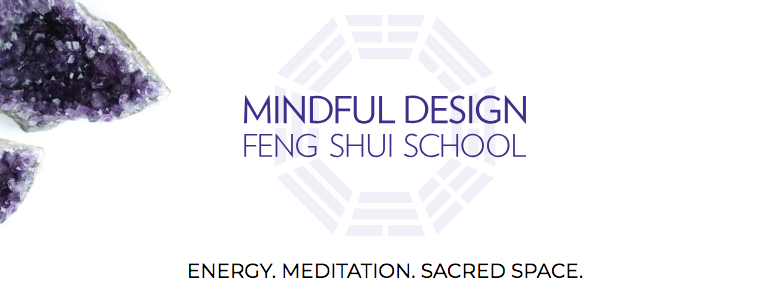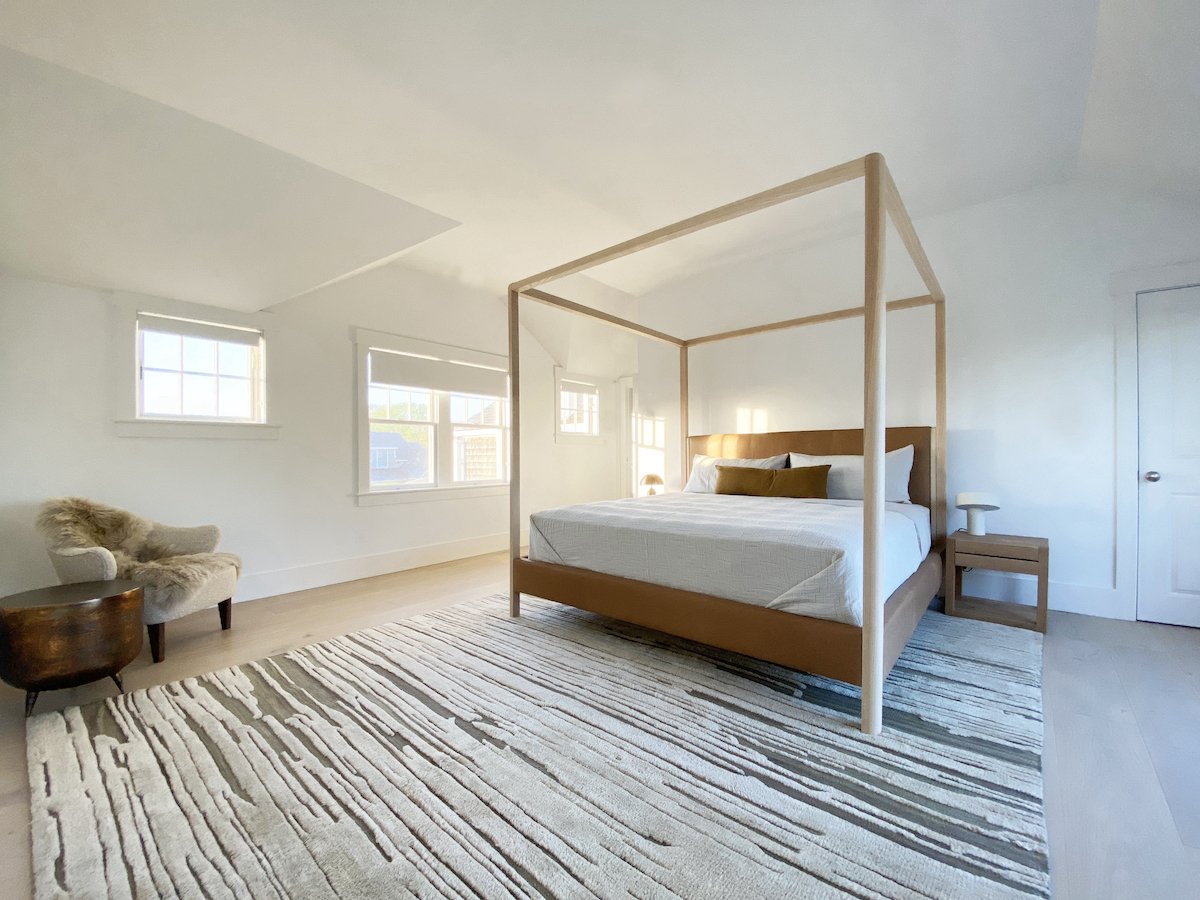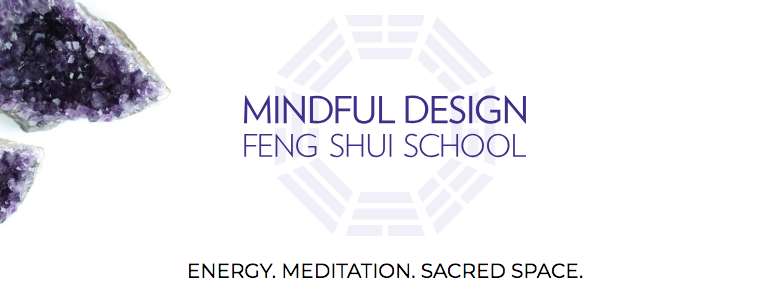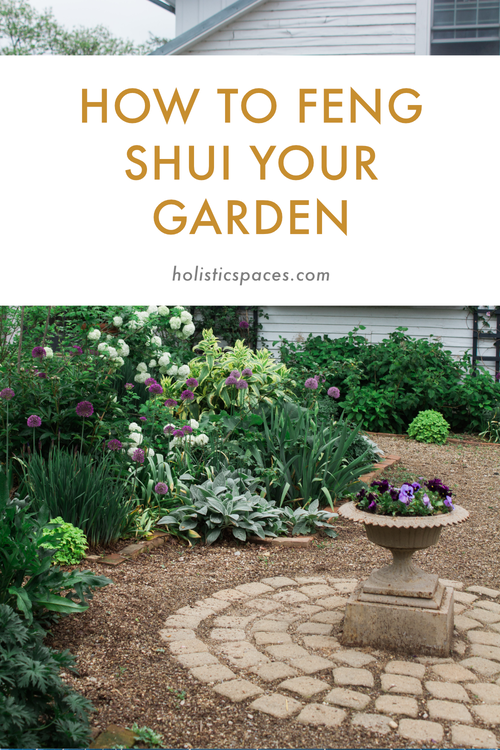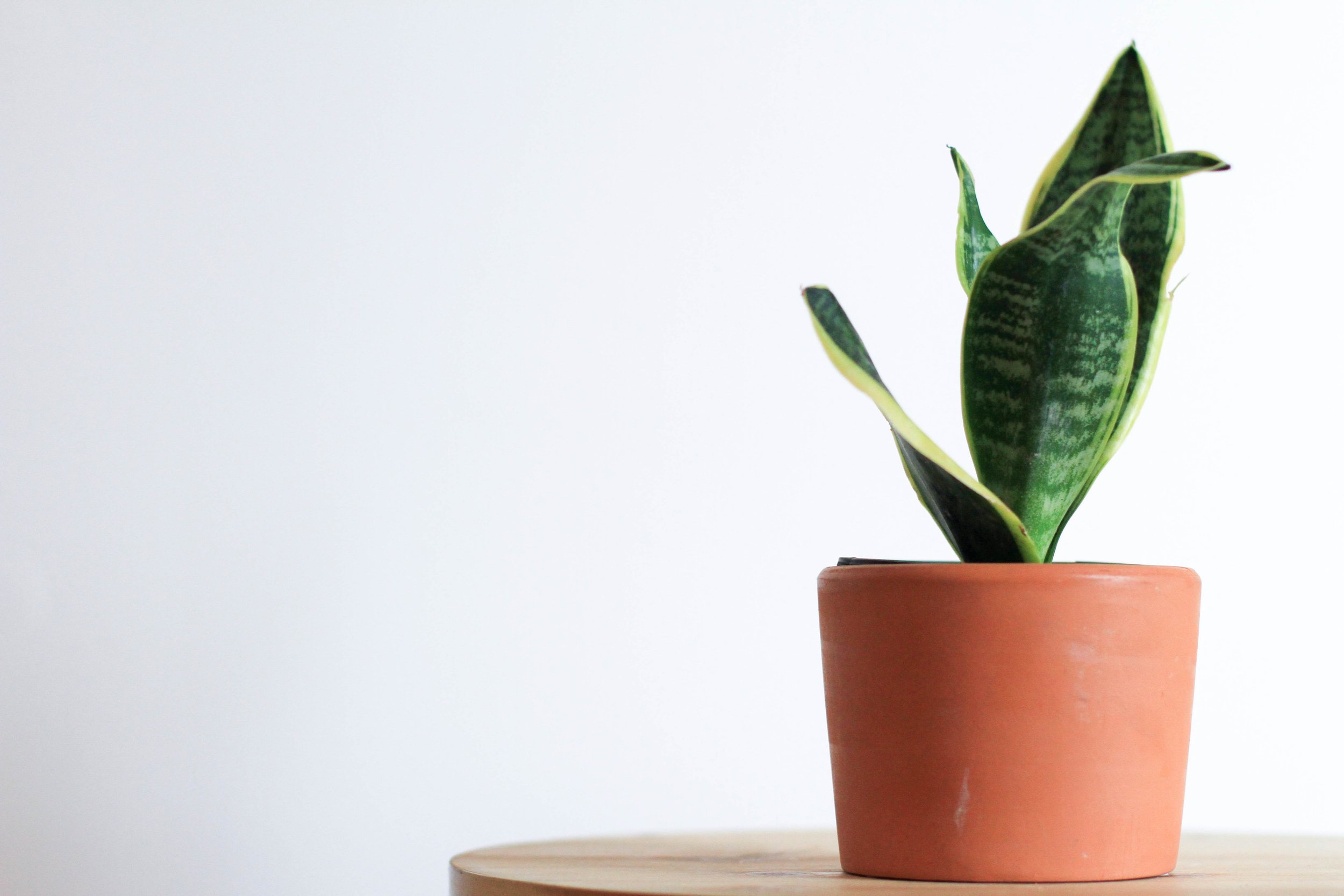Photo and design by Anjie Cho Architect PLLC
Art may not be the first thing you think of when designing your holistic space, but it actually plays a very important role on many levels. Art, by nature, is very subjective, but its effects in design are much more objective and global. Adding the perfect pieces to your home can bring your area together in various ways.
Balance The Five Elements
We've mentioned art many times as one of the easiest ways to balance out the five elements in any space. As each element relates to a certain area of the feng shui bagua, symbolized by certain shapes, colors and subjects, selecting a piece of art can bring in one or more of the five elements. For Earth you can add earthy colors like brown, orange and yellow and square shapes. For Metal, look for metallic colors, whites, grays and circular shapes. For Water, choose the colors dark blue and black and wavy shapes. For Wood, opt for green, blue and columnar shapes, and finally, for Fire, look for the color red and triangular shapes.
Meditation
Some types of sacred art can be viewed and contemplated in meditation. For instance, the yantra mandalas are created through meditation in action but also can be a visual focal point of a meditation practice. Sacred art is often created with mantra and symbolism. I once attended and event at the Rubin Museum of Art called a "Dream Over". The museum hosts this event in which attendees are assigned a piece of art that you contemplate overnight. Participants meditate, are read bedtime stories and are invited to sleep and dream under their selected piece of art. Art can be a wonderful way to guide meditation and open your mind to inspiration and creativity. What moves you? Look for that in your art pieces.
Add Nature
While the best way to add nature to a space for feng shui adjustments is with living plants, there are times when that option isn't feasible. Maybe your thumb is charcoal black or you have boisterous pets (or children). In this case, choosing artwork that depicts nature can be a great alternative. Be sure to pay attention to the colors in your art and match them to your feng shui needs for the specific room.
Add Color Without Paint
On a similar note, there are often occasions when painting a space is not an option, such as when renting an apartment. In this case, artwork can serve as a way to add color and brighten a room without breaking terms of a lease. Images can add a healthy dose of color on their own, or you can grab a blank canvas and paint it one solid color for a big pop.
Nurture Inspiration
Part of what makes a space holistic is that it provides nourishment and inspiration to its residents. We've even done a few posts and a podcast on how to make your space inspirational. One easy way to do this is with art. One of the best things about art is that it can be interpreted in so many ways and boosts creative thinking. Find a piece that inspires you to work toward your goals, make more art, spend more time on creative outlets, etc.
Strengthen a Room's Purpose
I mentioned earlier that it's important to keep each room's needs in mind when selecting art. This can also be used to your advantage! In design, we often aim for a certain feeling or aura in specific rooms. For instance, the bathroom is often meant to be a place for relaxation and the bedroom for passion. Adding curated artwork can help establish these purposes. Before you look at art, take stock of what you want each room in your space to inspire and find a piece that matches that feeling!
Whether you make your own art, find art that speaks to you or commission a personal piece, bringing artwork into your space can go a long way in making a house into a holistic home. If you're on the lookout for artwork now, consider a Holistic Spaces mandala or reach out to some of our favorite artists below:
If you’d like to learn more about feng shui, check out Mindful Design Feng Shui School at: www.mindfuldesignschool.com


